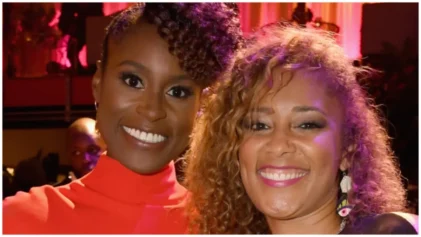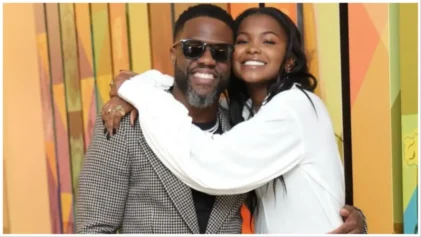
YouTube
Sir Mix-A-Lot came to actress Blake Lively’s defense after she wrote an Instagram caption quoting a lyric that boasted about her white face and supposed Black-looking backside. The actress posted a photo of herself in a curve-baring gown in Cannes on May 17. She captioned the image, “L.A. face with an Oakland booty,” a lyric from the MC’s 1992 hit, “Baby Got Back.”
The actress was called out for cultural appropriation, and critics say she was “disrespectful” toward minority women.
Another day, another rich white woman using WOC's bodies as a punchline and commodity. As if Blake Lively wasn't the worst already.
— Kat Bee (@katbeee) May 18, 2016
I want to follow Blake Lively just to unfollow after this LA/Oakland business. So much privilege even GOOP feels uncomfortable.
— Melinda (@mindamaureen) May 18, 2016
One Twitter user pointed out Lively married her husband, actor Ryan Reynolds, on an old plantation.
This is a reminder that Blake Lively and Ryan Reynolds got married on a plantation where slave cabins still stand. pic.twitter.com/9rbKXH2WDc
— Melissa Radzimski (@melissaradz) May 18, 2016
But after saying he liked the image, Mix-A-Lot tells Pret-a-Reporter he was “surprised” by the reaction.
The Seattle-based rapper said he wrote the lyric to celebrate Black women’s curves. Prefacing his statements by saying he is not speaking for the whole Black race, he said, “The reason I wrote the song was because I always felt that the African-American idea of what was beautiful was shunned.”
On the stereotypical way Hollywood portrayed minority women, he added, “If you go back and look at 1990, 1991, you only saw African-American women and Hispanic women who were either a maid or a hooker.”
The white idea of beauty prevailed.
“What was promoted as beautiful was kind of really waif-thin, borderline heroin addicts. I don’t mean that literally, I mean the look. That was kind of pushed at us, and we were told that it was beautiful.”
The rapper believes Lively quoting the lyric means that “the norm has changed, that the beautiful people have accepted our idea of beautiful.”
“It sounds like to me like she was giving the line props,” he added. “I think she’s saying, ‘I’ve got that Oakland booty,’ or ‘I’m trying to get it.’ ”
Mix-A-Lot thinks Black people’s criticism is misplaced. He said African-Americans should “be careful what we wish for” when it comes to criticizing white people who appropriate Black culture “because if you say she doesn’t have the right to say that, then how do you expect her at the same time to embrace your beauty? I mean, I don’t get it.”
“I think it’s almost a nod of approval, and that was what I wanted,” he continued. “I wanted our idea of beautiful to be accepted,” adding, “it wasn’t about some race battle.”


